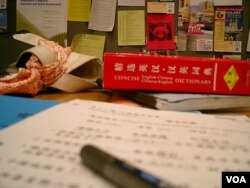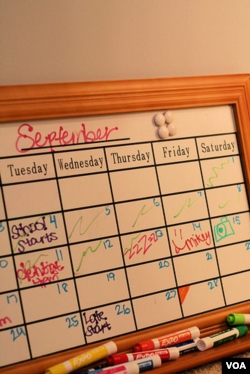It’s a little crazy that my spring break ended just a couple days ago, but already the end of the semester is only a few weeks away. By the end of April, I’ll have finished all of my regular classes and will only have a couple of final papers left to turn in. I’ll be able to say goodbye to my responsibilities as a George Washington University student for three and a half long months.
As an undergrad, summer break meant going home to New Jersey for a few months, working a low-stress job as a groundskeeper or warehouse worker, and usually bumming around during my free time. As a graduate student though, since my program is all about professional development, it’s tough to get away with just going home for the summer. Almost all of my classmates have an internship, job, or some cool project already lined up.
For my own part, I’m fortunate because the Sigur Center for Asian Studies at my university awarded me a generous grant to study Mandarin in Taiwan this summer. It’s a pretty awesome deal, and I’m really psyched about it, but it was definitely a process getting there. There are a couple of things that I think helped me out along the way:
Getting started early
I knew before I arrived at school last fall that I wanted to spend this summer brushing up on my Mandarin. I was still caught off guard by how quickly the application deadlines for the better language programs came up (which could be as early as January).
The particular grant that I received required all of my application materials in the office by February 18th. That meant I had to start asking for letters of recommendation from my professors as soon as I got back from winter break.
I think universities can be pretty flush with cash to help you fund your summer plans, but the deadlines to apply for funding might also be way earlier than the deadlines to apply for the actual program or project being funded. I found out that I would receive funding several weeks before I found out whether I was accepted into my language program in Taiwan.
Doing research and asking around
Talking to professors and classmates was really crucial to finding out what my best options were for studying overseas. I met with one classmate who had been awarded the same grant in the past, and his experience gave me a good indication of which language programs would be most worthwhile. He actually dissuaded me from applying to his old program, which I probably would have applied to otherwise, because his assessment of it was so unflattering.
Being able to say in my personal statement that I had spoken with particular professors and classmates also strengthened the quality of my application. It helped show that I took the process seriously. I have some classmates who applied for the same or similar grants this year, but, talking to them about it, some of them didn’t seem to put much time and effort into their applications. I really believe that 90% of why I received my grant was because I didn’t procrastinate (too much) and was able to convey to the application reviewers that I had done my research.
Even though it was a pain in the butt to have to worry about planning my summer during the middle of winter, I can finally start focusing on fun stuff like planning my travel itinerary (and hopefully swinging a vacation to mainland China before my program starts). I have my carrot at the end of the stick to get me through final exams and papers. And of course, even though spring only started last weekend, it’s already time to start thinking about what I want to do in the fall.





